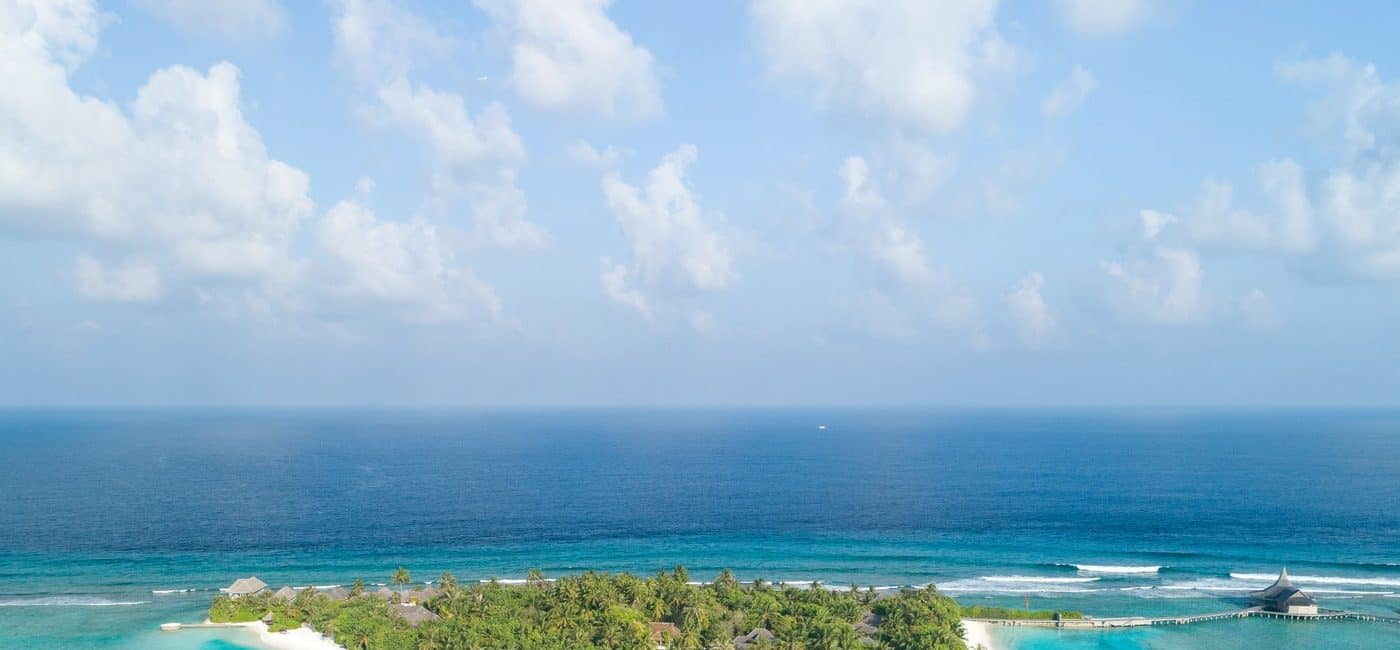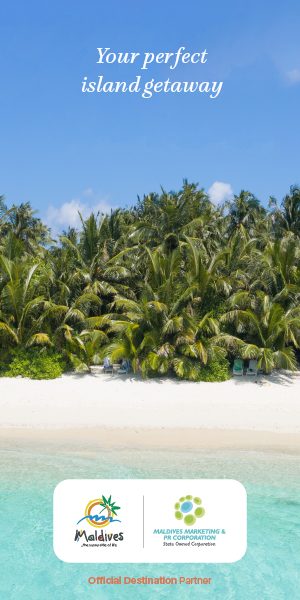The Maldives has been reopened its international borders on July 15, 2020, and since then with proper guidelines and regulations the country has been continuously revising its target, archiving milestones along the way.
The island nation has started its vaccination programme on February 01, with the President Ibrahim Solih, among the first people to receive the Covishield vaccine based on the AstraZeneca formula. The country believes that the vaccination programme and the effectiveness of its Covid-safe management policies will stand it in good stead to achieve tourism recovery by the middle of the year and maybe even exceed 2019 levels of 1.7m arrivals and 10.7m bed nights. Maldives also plans to vaccinate its population of 540,000 within six months and the tourism sector is receiving the vaccine first priority, along with healthcare.
Minister of Tourism Dr. Abdulla Mausoom said, “We are optimistic because the vaccine rollout came earlier than expected as well as based on the demand that we have. Many of the resorts had their best ever December in history, many markets rebounded, beating pre-Covid levels. We are 40% below pre-Covid levels because markets like China, Korea, Japan and Singapore – more than 40% of the market – remain closed. If travel starts from these countries, then we will be in total recovery.”
He further stated that the Maldives cannot wait for the markets in the Singapore region to open up and are keen to have a flow of tourists from Singapore. Furthermore, the announcement by the British Prime Minister Boris Johnson that Britons would be allowed to travel for holidays by May 17 further boosted the island’s confidence.
After the border reopening with a good flow of tourists, the country targeted 500,000 arrivals in 2020 but achieved 555,000, thus the target was revived upwards.
Minister Mausoom said, “Many of the resorts had their best ever December in history, many markets rebounded, beating pre-Covid levels. We are still 40% below pre-Covid levels as markets like China, Jorea, Japan and Singapore, which are more than 40% of our market, remain closed to us. If travel starts from these countries, then we are in total recovery.”
According to its daily updates (February 26), it received 92,103 arrivals in January 2021, down 46.9% from 173,347. From February 1-25, it recorded 84,291 arrivals, down 36.5% from 132,812. The numbers are about 40% down, due to the Asia missing link.
Maldives has also experienced major shifts in its markets. India was once number 02, but its now the lead market with Russia in second place. Minister Mausoom stated that the country has many new markets from Eastern Europe, which are going strong. Furthermore the average stay has jumped from 7.5 to more than 9.5. “Some were staying so long that it was flouting the law which is designed for three months, so we started giving special extensions to those who wished to stay longer,” Minister Mausoom said. It now has plans to extend tourist visas and introduce “work from anywhere” permits.
Tourists arriving in the Maldives currently come from markets with fewer restrictions on travel. They require a negative PCR test (taken within 96 hours) to enter. They do not require a PCR test on arrival in Maldives unless they show symptoms. No quarantine is necessary and “because of the Covid management system in Maldives, returning tourists do not require quarantine in their home countries”, said Minister Mausoom.
With its geography leading itself to natural “bubble wrapping with travellers going from point to point, Male to island and ease of entry has made Maldives high in-demand destination. Major airlines such as Qatar and Emirates have increased their flights to the Maldives as well, given it is one of the very few places they can actually fly to with relatively healthy loads.
As for the Covid status in the Maldives, on March 1, the country recorded 186 new cases of Covid-19 infections with a seven-day average of 150. As of March 02, 2021, there have been 20,144 infections and 62 coronavirus-related deaths reported in the country since the pandemic began.
Minister Mausoom said the situation was under control in Male. “There are some restrictions in the city, life is pretty much normal here, and tourists do not spend time in Male, they go straight to their islands. We are physically set up so that each island has its own control measures. Many departing tourists now require negative PCR tests. ” He further stated that there has been no record of transmissions from tourists to locals.
The island nation receives more than 3,000 arrivals and conducts about 1,300 PCR tests for departing tourists, along with random testing of resort staff for early detection.Having practised Covid-safe management measures now for more than six months, Minister Mausoom said one lesson he’s learnt in managing tourism during a pandemic is to have “basic parameters that are essential to safe set-up to ensure maximum safety to local communities and arrivals”.
“Travellers require negative PCR tests on arrival. If an arrival shows symptoms on arrival, we have set up tourist facilities so they stay away from everyone else but still enjoy their holiday. We have systematic procedures in place to take necessary measures should there be a need for medical attention.”
In the five-and-half months, in which it received 165,000 tourists, three required hospitalisation. “When fit enough, they go back to their holidays within the quarantine system. The main lesson is to have a very transparent system with maximum safety and minimum inconvenience. You do not compromise on safety and over-burden tourists.”
The Maldives is also one of the country that have received the WTTC Safe Travels stamp, designed “to enable travellers to identify destinations and businesses around the world which adopted its health and hygiene global standardised protocols – so consumers and holidaymakers can experience ‘Safe Travels’.”
“When our population is fully vaccinated and when Europe is vaccinated, the Maldives will be the first country out of the gates and this will probably change the numbers,” said Minister Mausoom. “I expect that by end of May, we should be totally back to pre-Covid levels. Our hope is that as Asia opens, we will surpass existing projections.”




